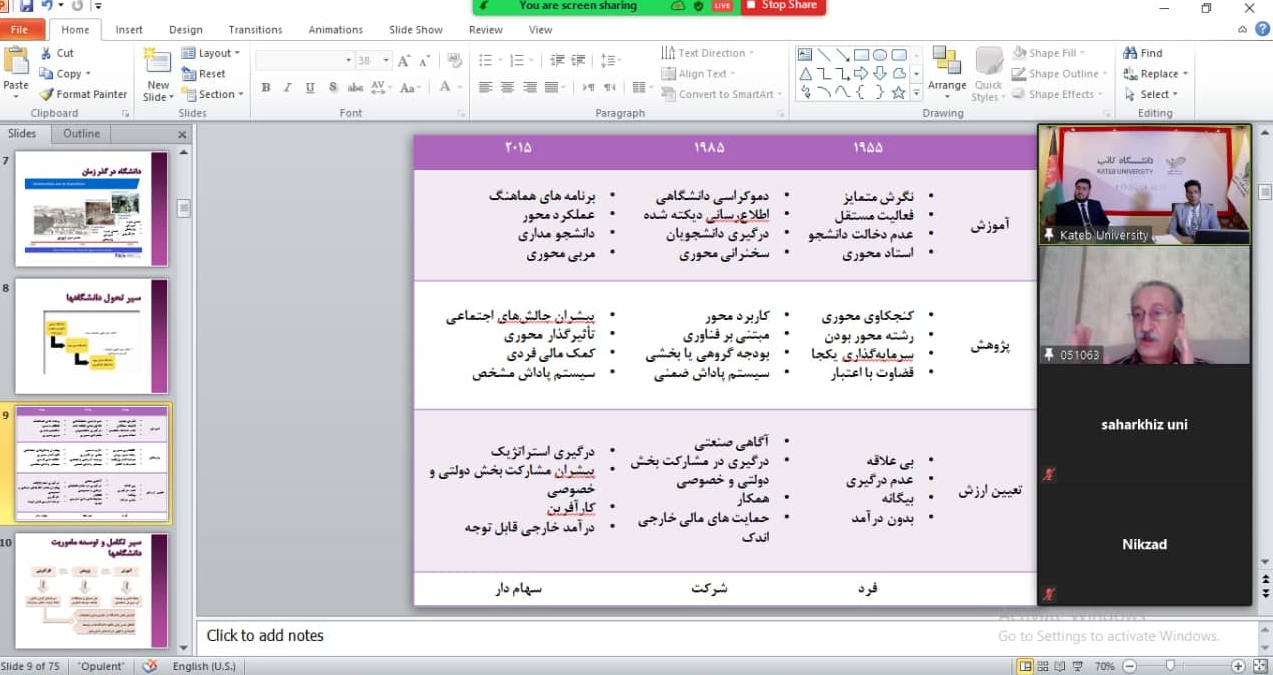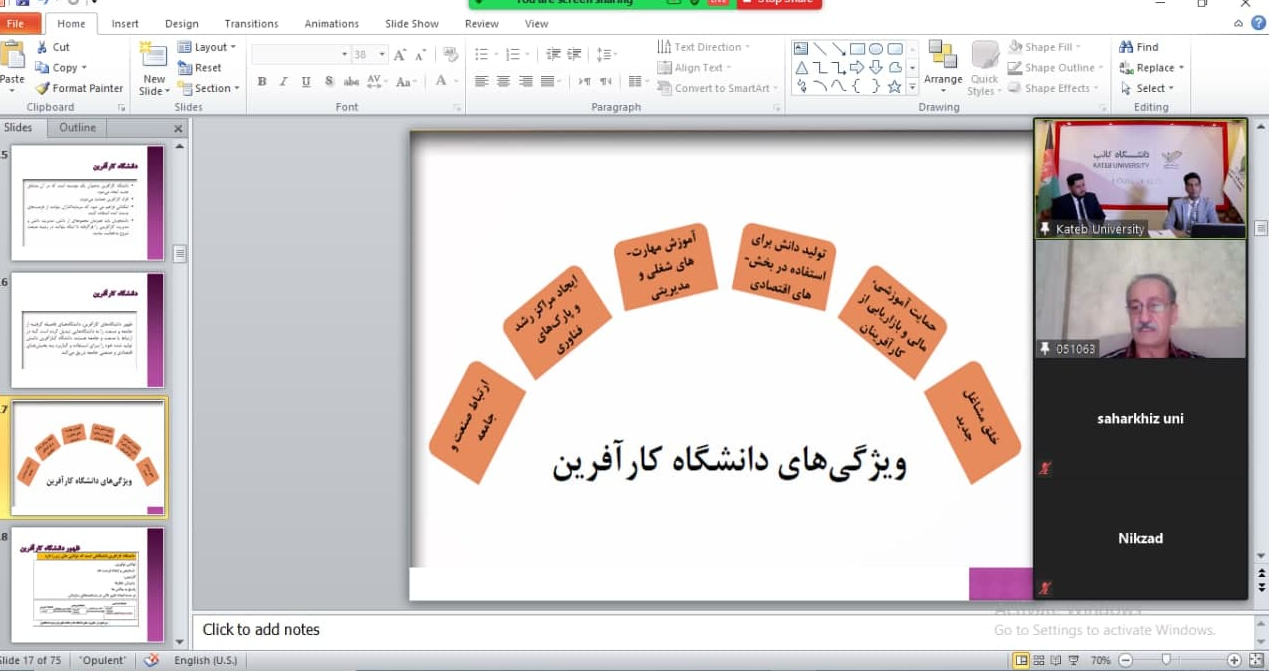On July 18th, 2021, the webinar on “Entrepreneurship in University” was held through Zoom Conferencing Software and Kateb’s Official Facebook Page. This webinar was held in three different panels (Panel 1: The Role of Universities in Enhancing Entrepreneurship, Panel 2: Entrepreneur Universities and Entrepreneurship in Universities, and Panel 3: Challenges of Entrepreneurship in Afghanistan). The main focus of this webinar was on Goal Eight of Sustainable Development Goals (Goal#8: Decent Work and Economic Growth). The presenters of this webinar were Mr. Prag Rabadi, lecturer at Kateb University, Mr. Gholam Abbas Arabshahi, lecturer at Sahrahkhiz University, and Mr. Mohammad Shaker Azizi, head of BBA Department, and the moderator of this webinar was Mr. Dawood Najafi, Manager at Students Development Center of Kateb University.
At the beginning of the webinar, Mr. Najafi talked about success in new businesses. He said: “Investment is no motive for an idea; it is the idea which is the motive for investment”. Then, Mr. Najafi talked briefly about the generation one, two, and three of universities. Then, he introduced each presenters of the webinar.
The first presenter of the webinar was Mr. Azizi. The topic of his presentation was about challenges of entrepreneurship in Afghanistan. At the beginning of his speech, he introduced the process of entrepreneurship like: “It is the process in which the new ideas are changed in the business.” In addition, he talked about the role of entrepreneurship in economic growth and the existing challenges in Afghanistan.
In the continuation of the webinar, Mr. Azizi pointed out the role of entrepreneurship in developing a country. Some of the main roles include making investment, development, providing jobs for other, making money and increasing imports. And, in the area of challenges, he said that some of the main challenges existing in Afghanistan were insecurity, the ambiguity of the law, a high rate of tax, not receiving support from the government, and lack of investors.
In the end, Mr. Azizi provided solutions for these challenges. Some of the solutions are: providing support to the new business, making a database of bails, and providing electricity for the new business.
The next presenter was Mr. Gholam Abbas Arabshahi. His speech topic was about entrepreneur universities and entrepreneurship in universities. Assessing the universities, he said: “Universities play a vital role in all social and economic aspects.” Besides, he pointed out that the universities are the main center of development and transformation and the center of training human resources in any society. He added that universities have three main assets, which are faculty members, lecturers and research staff, and students.
Then, Mr. Arabshahi talked briefly about the history of universities and also talked about generation one, generation two, and generation three of universities. He said that in the first revolution (appearance of basic research in universities), the first generation universities changed to second-generation universities, and in the second revolution (appearance of applied research) the second generation universities changed to third-generation universities.
At the end of his presentation, Mr. Arabshahi compared second and third-generation universities and said:
“Entrepreneur university is an institution where new jobs are created and students learn a set of knowledge and entrepreneurial management at the same time before they can start working in the industry.” Then, he described the characteristics of third-generation universities. Some of them are: creating new jobs, supporting education, finance, and marketing for entrepreneurs, generating knowledge for use in the economic, vocational and managerial fields, establishing development centers, and connection with industry and society.”


Comment is not allowed